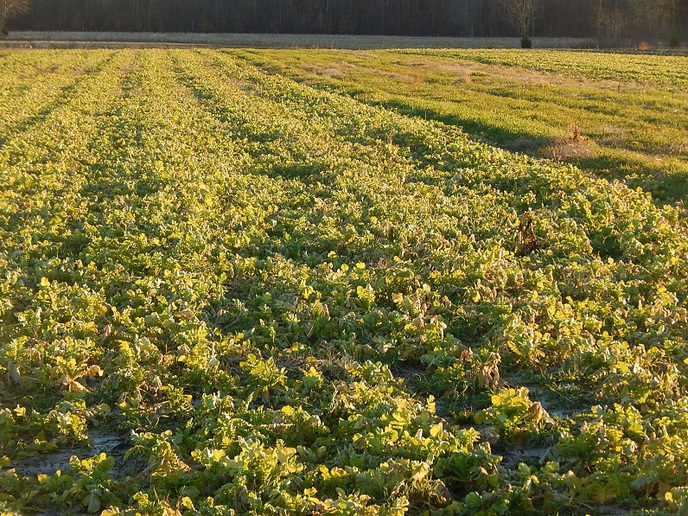flying belgian
Well-known Member
I have mixed feelings on this. First let me say I am a full time conventional farmer. I use fertilizer, herbicides and pesticides. Here in South central Mn. we have had unusually wet weather for past 3 or 4 seasons. Hence everybody is adding more drainage tile. Because we are getting larger rain events many of them are putting stand pipes in the low spots of their fields to take those 2" rains away before crop drowns out. You are suppose to stay 90' away from stand pipes with RUP. I still use a row crop cultivator so I do in fact stay away from my 3 standpipes with the RUP. But the bto. cannot be bothered with that restriction and they go right over the top when they are laying down their pre. I see them do it all the time. As a matter of fact I had the local co-op put down my pre 2 years ago. It contained atrizine which is a RUP. I told the operator where there was a stand pipe on the edge of that farm along the road ditch. He had no idea why he needed to know that. And then get this. That same stand pipe has thistles growing around it in the road ditch. And I saw the state come along with their sprayer in the summer and just soaked them thistles right over the top of my stand pipe. I have know idea if they are spraying wit a RUP. but I bet it is. It really fried those thistles.
Now that being said, all our field tile here in So. central Mn. is a direct link to the Mn. river, one of the most polluted rivers in the nation. Filled with nitrates. The townies say us farmers are killing that river. The farmers say it is not us as we wouldn't pay to put down more then labeled amount of spray which is only couple pints per acre. It is you townies who spray gallons on your 1/4 acre lawn because God help us if you have a dandelion in your lawn. Wake up farmers. Of course it's us. Not entirely but we play a part in this whole mess. Farm Bureau and other farm groups flat out deny that farmers are adding to the problem at all. When I see sprayers go right over the top of stand pipes I know for certain we are part of the problem. If we don't clean up our act you are going to see the govt. put restrictions in place for use of fert. and pesticides. Just mark my word. Here in Mn. the govt. had to create laws to place buffer strips along waterways. 30' for some, 90 ft. for some. Many farms had berms and grass waterways where needed along there water ditches and were taking excellent care. But because a few were careless and neglectful, now everybody has to do it. It's the law.
Now that being said, all our field tile here in So. central Mn. is a direct link to the Mn. river, one of the most polluted rivers in the nation. Filled with nitrates. The townies say us farmers are killing that river. The farmers say it is not us as we wouldn't pay to put down more then labeled amount of spray which is only couple pints per acre. It is you townies who spray gallons on your 1/4 acre lawn because God help us if you have a dandelion in your lawn. Wake up farmers. Of course it's us. Not entirely but we play a part in this whole mess. Farm Bureau and other farm groups flat out deny that farmers are adding to the problem at all. When I see sprayers go right over the top of stand pipes I know for certain we are part of the problem. If we don't clean up our act you are going to see the govt. put restrictions in place for use of fert. and pesticides. Just mark my word. Here in Mn. the govt. had to create laws to place buffer strips along waterways. 30' for some, 90 ft. for some. Many farms had berms and grass waterways where needed along there water ditches and were taking excellent care. But because a few were careless and neglectful, now everybody has to do it. It's the law.


